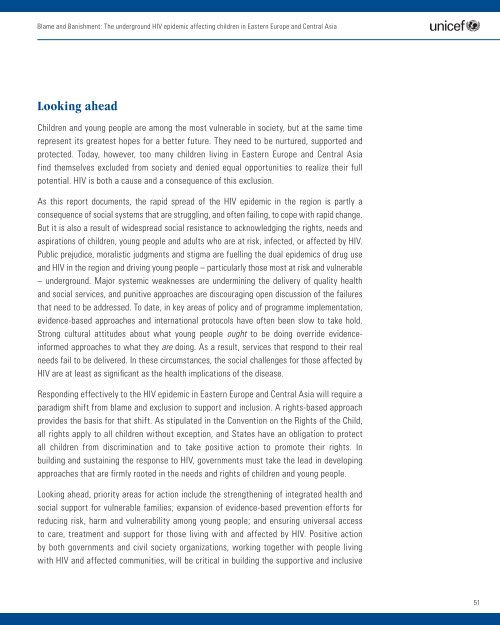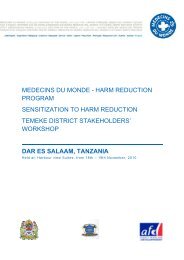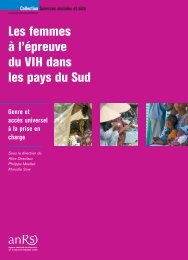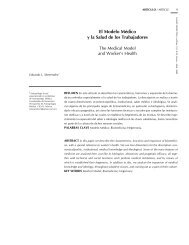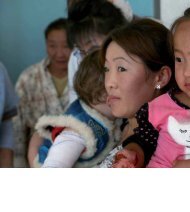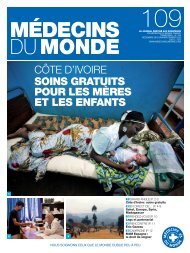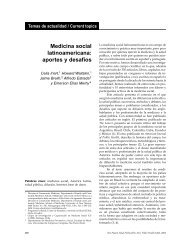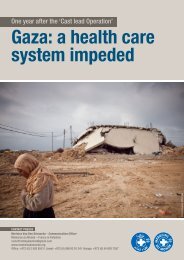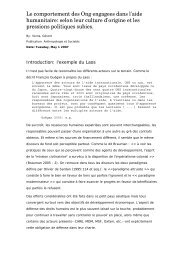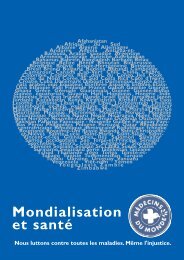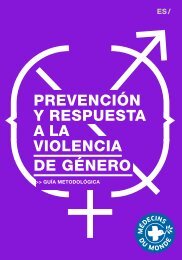Blame & Banishment - Médecins du Monde
Blame & Banishment - Médecins du Monde
Blame & Banishment - Médecins du Monde
You also want an ePaper? Increase the reach of your titles
YUMPU automatically turns print PDFs into web optimized ePapers that Google loves.
<strong>Blame</strong> and <strong>Banishment</strong>: The underground HIV epidemic affecting children in Eastern Europe and Central Asia<br />
Looking ahead<br />
Children and young people are among the most vulnerable in society, but at the same time<br />
represent its greatest hopes for a better future. They need to be nurtured, supported and<br />
protected. Today, however, too many children living in Eastern Europe and Central Asia<br />
find themselves excluded from society and denied equal opportunities to realize their full<br />
potential. HIV is both a cause and a consequence of this exclusion.<br />
As this report documents, the rapid spread of the HIV epidemic in the region is partly a<br />
consequence of social systems that are struggling, and often failing, to cope with rapid change.<br />
But it is also a result of widespread social resistance to acknowledging the rights, needs and<br />
aspirations of children, young people and a<strong>du</strong>lts who are at risk, infected, or affected by HIV.<br />
Public prejudice, moralistic judgments and stigma are fuelling the <strong>du</strong>al epidemics of drug use<br />
and HIV in the region and driving young people – particularly those most at risk and vulnerable<br />
– underground. Major systemic weaknesses are undermining the delivery of quality health<br />
and social services, and punitive approaches are discouraging open discussion of the failures<br />
that need to be addressed. To date, in key areas of policy and of programme implementation,<br />
evidence-based approaches and international protocols have often been slow to take hold.<br />
Strong cultural attitudes about what young people ought to be doing override evidenceinformed<br />
approaches to what they are doing. As a result, services that respond to their real<br />
needs fail to be delivered. In these circumstances, the social challenges for those affected by<br />
HIV are at least as significant as the health implications of the disease.<br />
Responding effectively to the HIV epidemic in Eastern Europe and Central Asia will require a<br />
paradigm shift from blame and exclusion to support and inclusion. A rights-based approach<br />
provides the basis for that shift. As stipulated in the Convention on the Rights of the Child,<br />
all rights apply to all children without exception, and States have an obligation to protect<br />
all children from discrimination and to take positive action to promote their rights. In<br />
building and sustaining the response to HIV, governments must take the lead in developing<br />
approaches that are firmly rooted in the needs and rights of children and young people.<br />
Looking ahead, priority areas for action include the strengthening of integrated health and<br />
social support for vulnerable families; expansion of evidence-based prevention efforts for<br />
re<strong>du</strong>cing risk, harm and vulnerability among young people; and ensuring universal access<br />
to care, treatment and support for those living with and affected by HIV. Positive action<br />
by both governments and civil society organizations, working together with people living<br />
with HIV and affected communities, will be critical in building the supportive and inclusive<br />
51


